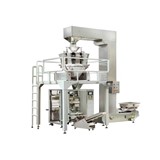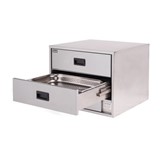Key takeaways
- Staff wellbeing drives performance – Healthy, supported teams are more productive, creative, and less prone to turnover.
- Communication is critical – Clear, consistent communication prevents mistakes, reduces stress, and fosters collaboration.
- Training and mentorship matter – Structured onboarding and ongoing coaching improve skill development and team confidence.
- Work-life balance protects retention – Fair rostering, breaks, and recognition reduce burnout in Australia’s high-pressure hospitality environment.
- Culture is measurable – Use KPIs like staff turnover, absenteeism, and internal feedback to monitor and refine your kitchen culture.
- Recruitment and hiring strategies: Hiring staff who align with your kitchen’s values and culture reduces turnover, strengthens teamwork, and sets a positive foundation from day one.
- Technology and workflow optimisation: Smart use of technology streamlines operations, empowers staff, and allows your team to focus on quality, collaboration, and a smooth kitchen environment.
- Diversity, equity, and inclusion (DEI): Fostering an inclusive and respectful kitchen boosts morale, creativity, and retention, making your team stronger and more resilient while improving service outcomes.
Introduction
In Australia’s fast-paced hospitality industry, kitchens are high-pressure environments. From bustling Sydney restaurants to regional cafés, your team faces long hours, tight deadlines, and constant customer expectations. A healthy kitchen culture isn’t just a feel-good initiative, it directly impacts food quality, customer satisfaction, and staff retention.
High staff turnover and stress-related issues continue to challenge Australian hospitality operators. According to the Restaurant & Catering Australia (R&CA, 2024) workforce survey, over 60% of kitchen staff leave within their first year, often citing poor workplace culture and unrealistic expectations. Implementing strategies to foster a positive environment can therefore yield both operational and financial benefits.
This article explores actionable strategies for building a sustainable, high-performing kitchen culture, with practical Australian examples, tips, and measurable approaches.
Foster open and respectful communication
Effective communication is the backbone of a healthy kitchen. It prevents errors, reduces stress, and ensures staff feel heard.
- Daily briefings – Quick pre-shift huddles clarify expectations, share updates, and align priorities. This can include menu changes, special dietary requests, or operational reminders.
- Encourage feedback – Use suggestion boxes, digital feedback forms, or weekly team check-ins. Create a culture where staff can voice concerns without fear of reprisal.
- Conflict resolution protocols – Clearly define steps for handling disputes between staff, or between staff and management. Early intervention reduces tension and prevents minor issues from escalating.
- Active listening – Encourage kitchen leaders to actively listen and respond constructively to staff input.
Example: A Melbourne bistro introduced a weekly “kitchen forum,” reducing miscommunication incidents by 40% and boosting staff satisfaction scores.
Prioritise staff wellbeing and work-life balance
Australian kitchens operate under intense pressure. Ensuring staff wellbeing prevents burnout, improves retention, and supports operational efficiency.
- Structured rostering – Avoid overloading staff with consecutive long shifts. Predictable schedules allow staff to plan personal commitments, improving overall morale.
- Mandatory breaks – Ensure legally compliant and practical rest periods to maintain alertness and reduce mistakes.
- Mental health support – Offer access to counselling, employee assistance programs, or wellness initiatives. Destigmatise mental health discussions in the kitchen.
- Physical health considerations – Proper ergonomic equipment, anti-fatigue mats, and hydration strategies protect staff from injuries common in commercial kitchens.
Statistic: The Australian Hospitality Industry reports that 35% of kitchen staff experience high work-related stress, underlining the importance of proactive wellbeing measures.
Develop training, mentorship, and career pathways
Training and mentorship create confident, skilled teams while reducing turnover and errors.
- Comprehensive onboarding – Include not only operational tasks but also organisational values, culture, and safety protocols.
- Cross-training – Rotate staff through different kitchen stations to build versatile skillsets and foster teamwork.
- Mentorship programs – Pair junior staff with experienced chefs for guidance and skill development.
- Continuous development – Offer workshops, certifications, or external training in culinary techniques, food safety, or leadership.
ROI insight: Venues with structured mentorship programs see up to 25% lower turnover rates than those without, according to Service Skills Australia.
Australian case: A Sydney café implemented a three-month mentorship program, improving kitchen efficiency by 15% and staff satisfaction by 22%.
Recognise and reward performance
Acknowledging contributions motivates staff and reinforces a positive culture.
- Spot awards – Celebrate exceptional work immediately with verbal recognition or small rewards.
- Team recognition – Recognise collective achievements, like successfully handling peak service times.
- Incentives – Offer bonuses, additional time off, or professional development opportunities to encourage ongoing engagement.
- Public praise – Share successes in staff meetings or newsletters to boost morale.
Australian case: A Brisbane café introduced a quarterly “Team Excellence Award,” improving staff retention from 60% to 82% within a year.
Encourage collaboration and shared ownership
A culture of collaboration empowers staff and reduces operational friction.
- Joint problem-solving – Involve the team in decisions about menu changes, workflow improvements, or safety initiatives.
- Shared goals – Align individual responsibilities with team objectives to foster accountability and collective ownership.
- Inclusive culture – Respect diversity in backgrounds, skills, and working styles. Encourage staff to contribute ideas and lead initiatives.
Scenario: A regional NSW restaurant reduced food prep errors by 30% after implementing a collaborative inventory system where all staff contributed efficiency ideas.
Monitor culture and measure outcomes
Measuring culture ensures interventions are effective and allows continuous improvement.
- KPIs to track – Staff turnover, absenteeism, workplace incidents, internal surveys, and feedback forms.
- Continuous improvement – Regularly review KPIs and adjust training, rostering, or communication strategies accordingly.
- Benchmarking – Compare your metrics against industry averages to gauge success and identify areas for growth.
Example: A Perth hotel kitchen used anonymous quarterly surveys to monitor morale. When scores dipped during peak season, they implemented rotational breaks, increasing staff satisfaction by 20%.
Practical tips for implementation
- Start small – Introduce one initiative per month rather than attempting a full-scale overhaul.
- Engage leaders – Kitchen heads set the tone. Their behaviour models desired cultural standards.
- Document processes – Scripts, checklists, and guidelines ensure consistency.
- Communicate wins – Share success stories to motivate staff and reinforce positive behaviour.
- Invest in technology – Use scheduling, feedback, or training apps to support staff without replacing human connection.
Legal and compliance considerations
Why it matters: Healthy kitchen culture aligns with safety, legal, and regulatory obligations.
Australian compliance touchpoints:
- Work Health and Safety (WHS) laws: Safe rostering, manual handling, and injury prevention.
- Fair Work Australia: Correct hours, breaks, and leave entitlements.
- Food Safety Standards (FSANZ): Proper hygiene and training practices.
Aligning culture-building initiatives with these requirements protects staff, reduces liability, and enhances reputation.
Recruitment and hiring strategies
Your kitchen culture starts with the people you bring in. Hiring the right team members is more important than simply filling vacancies. In Australia, hospitality turnover is high, around 23% annually (Restaurant & Catering Australia, 2024), so recruitment choices can make or break your culture.
Practical tips:
- Hire for attitude first: Look for adaptability, teamwork, and resilience as much as technical skill.
- Behaviour-based interviews: Ask candidates how they’ve handled high-pressure situations or conflicts in previous roles.
- Trial shifts: Observe communication, workflow, and teamwork in real conditions before making permanent offers.
- Reference checks: Focus on cultural fit and past teamwork experience, not just technical ability.
Why it matters: Selecting staff who align with your values reduces friction, strengthens morale, and sets a foundation for a positive, collaborative kitchen culture.
Technology and workflow optimisation
Smooth workflows reduce stress, prevent errors, and support a positive work environment. Smart use of technology ensures your kitchen operates efficiently while giving staff the tools they need to succeed.
Practical tips:
- Digital prep and task lists: Keep everyone on the same page and reduce miscommunication.
- Scheduling software: Fairly allocate shifts, manage leave, and minimise conflicts over rostering.
- Integrated platforms: Use order management and feedback systems to monitor performance and identify bottlenecks.
Australian relevance: Many kitchens face staffing shortages and high-volume services; optimised workflows help teams cope with busy periods while maintaining morale and service quality.
Why it matters: Technology doesn’t replace people, it empowers them. A well-structured workflow lets staff focus on quality and collaboration, strengthening your kitchen culture.
Diversity, equity, and inclusion (DEI)
Inclusive kitchens are happier kitchens. Valuing diverse backgrounds, experiences, and perspectives improves teamwork, creativity, and retention. In Australia, multicultural teams are common across hospitality, making DEI strategies both practical and culturally relevant.
Practical tips:
- Celebrate diversity: Highlight multicultural cuisines and acknowledge staff contributions from different backgrounds.
- Flexible scheduling: Accommodate caregivers, students, or employees with other commitments.
- Training programs: Provide sessions on unconscious bias, respectful communication, and inclusive teamwork practices.
- Open feedback channels: Encourage staff to share concerns or suggestions safely and anonymously.
Why it matters: Teams that feel respected and included work more effectively, reducing turnover and improving both service and workplace satisfaction. Inclusive kitchens aren’t just ethical, they’re smarter, more resilient, and better for business.
Summary
Building a healthy kitchen culture in Australia requires intentional strategies, practical tools, and ongoing measurement. By focusing on communication, wellbeing, training, recognition, collaboration, and monitoring, you create a kitchen where staff feel valued, motivated, and empowered. The payoff is clear: improved retention, better customer experiences, and a resilient, high-performing team.



-160x160-state_article-rel-cat.png)


-160x160-state_article-rel-cat.png)





-160x160-state_article-rel-cat.png)









